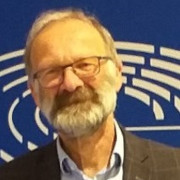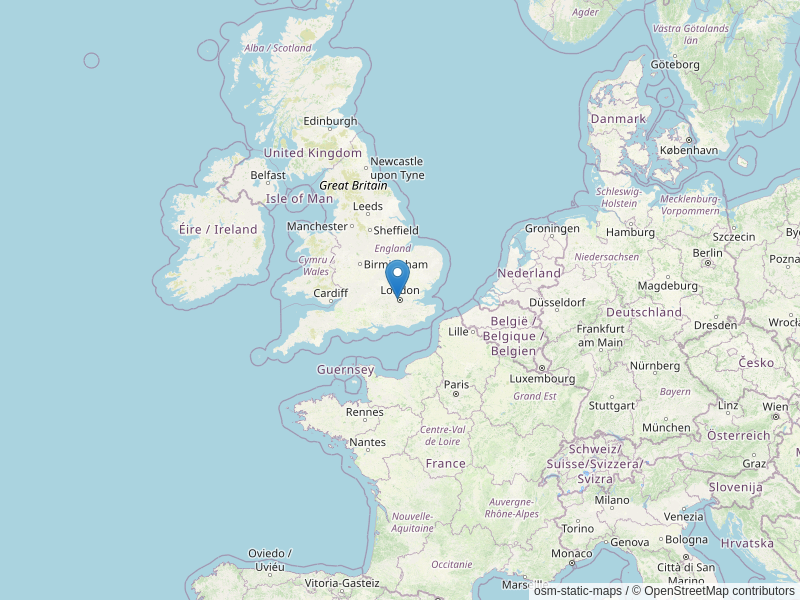In Profile - Joachim Fischer

© DAAD/Fischer
Here is a bit more about myself.
- Prof. Joachim Fischer MA (Mainz), PhD (TCD, Dublin)
- Jean Monnet Chair in European Cultural Studies and Senior Lecturer in German, Studied English, German, Celtic Studies and Communications in Mainz, Glasgow (through the DAAD Anglistenprogramm) and Bonn; PhD in German Studies in Trinity College Dublin, 1984-87 DAAD Lektor, University College Cork; Lecturing in German and European Studies in the University of Limerick since 1990, Jean Monnet Chair since 2019 Founding Joint Director (with Gisela Holfter) of the Centre for Irish-German Studies (1997), Course Director BA European Studies for many years, founding Course Director of Double Degree MA in European Studies (University of Limerick/Europa Universität Flensburg)
- Research interests: Travel writing, national images, German film, Utopian studies, cultural dimensions of European integration, Active involvement in ERASMUS exchanges from the inception of the programme in 1987 and still co-ordinating exchanges of students of German with German and Austrian universities
What does a typical day in your job look like? Is there any link/relation to German/ Germany?
Is there a typical day for a university lecturer? The answer to the question was a depressing yes for the two Covid years 2020 and 2021 when I got up, had my breakfast, went into my study, spent a day in front of the computer screen, finished in the evening, had my dinner and went to bed. It was a dreadful time, in particular my interaction with the students, whether I was teaching German or other subjects. Language teaching online is hugely frustrating, especially for someone like me not properly trained in these matters. I often felt like speaking into a void or to myself. My thirty-eight years before then were generally very varied and exciting, every new email could give the day a different direction. Relative to other careers, I have had huge freedom to shape my days and weeks, between teaching, research and administrative matters (which I least enjoyed), the great privilege of academia. I was fortunate to be allowed teach topics and texts that were close to my heart, especially in my German classes.
If you are teaching, what sparked your interest in education and teaching? Especially in teaching abroad?
The intellectual excitement, critical spirit and academic freedom of the 1970s and 1980s when the Humboldtian ideal of the unity of teaching and research still mattered more than it does now, made me want to stay in this environment. I could never see a more attractive job proposition than to remain at school forever. I am not looking back on my study years through rose-tinted glasses: I would always defend the principles driving the Bologna process, much maligned by most of my colleagues teaching in Germany, for the good it has brought in developing the European Educational Area, not to mention the huge expansion of ERASMUS+. It is the best thing the EU ever did and I have remained involved in it ever since its introduction in 1987.
The answer to the second question consists of only four letters: DAAD. I have not been paid to say this, it is actually true. The DAAD Lektorenprogramm was as if designed for me and enabled me to get my first real job at University College Cork. Having studied Anglistik and Keltologie I always knew that I wanted to spend more time in those parts of Europe with a Celtic heritage, all the more after the DAAD awarded me a semester at the University of Glasgow in 1977/78 through the Anglistenprogramm. I studied German to make myself more marketable abroad, and this decision has been among the best I ever made.
Which city in Germany have you been studying/researching and what was/were the reason/s for choosing it?
I studied in Mainz and the city has forever remained close to my heart. The choice was accidental and down to what was then called the ZVS, the office allocating study places at the time, which (thankfully) did not approve my preferences as well as to the University of Mainz which did. As so often in my life, fate has been on my side. Mainz has exactly the right mix of human warmth and cultural vibrancy that makes it a joy to live in. It is perhaps among the German cities that are most proudly and in the best possible sense, provincial. Coming from a small town in the Siegerland (North Rhine Westphalia) this environment suited me. Only in recent years, mainly due to family connections, I have gravitated towards Berlin and Potsdam and I can easily see why the German capital is only at the beginning of its new lease of life as one of the great metropoles of Europe.
What do you like in or about Germany? Can you give an example?
Should a German answer this question? Perhaps I may be permitted to do so as the country I left in 1984 does no longer exist, except in my head. There I have always remained a citizen of the West German BRD, a country that to my generation was more an abbreviation than a Heimat, a country my generation spent most of their time criticizing. That the famous TV series with that title was first aired on ARD in the year of my leaving Germany has a deep personal symbolic significance for me as it marks the beginning of a shift in my own relationship with the country whose passport I hold. This is more than the banal absence makes the heart grow fonder. As time went by I dared to see more what the Germans do well and right, in the present as much as in the past. I have grown increasingly impatient with the simplistic and often false images of the country based on self-imposed ignorance. I am an anti-nationalist, a view that finds only limited resonance in Ireland, and if anything an EU citizen and strong advocate for the process of European integration within the European Union. What I appreciate most about my home country is that it has retained (in relative terms) such a strong critical attitude towards national greatness and is still struggling with itself. Which other country has had such an extensive process of coming to terms with its dreadful past? And I am proud of the literary, artistic and intellectual traditions in the German language and of the places where they happened. It was a huge surprise to me that I had tears in my eyes when I walked through the Brandenburg Gate for the first time in my life, so my relationship with this country must run deeper than I ever imagined.
Is there a (German) book or (German) author or maybe German film you always return to? If yes, why?
There is a long list, and among the classics I always return to Goethe’s Werther. Perhaps because Werther’s mindset is so alien to me that I never tire to explore it. He also loved Macpherson’s Ossian which links him to my Celtic interests. In more recent years – and without wanting to appropriate an Austrian writer – I have been inspired by and hugely profited from Robert Menasse’s Die Hauptstadt, also available in English: it is the perfect text to teach the European Union. Many of my students – at least those who are still ready to engage with a novel of over 450 pages – enjoy it as much as I do and appreciate the – unorthodox – literary approach to the topic. Also Ernst Bloch’s magnificent Prinzip Hoffnung, a deeply comforting, positive and all-encompassing attempt of making sense of the world, into which I dip again and again when I am overwhelmed by the complexity and contradictions of the present.
Can you cook a German dish without a recipe? If so, which one and where have you learned it?
Perhaps Reibekuchen. Otherwise I dread most typical German dishes – except those my mother cooked for me when I was young. Her Rinderrostbraten was my favourite, from a cut she called “Rossböff” – roast beef. I am sure she had no idea where the word came from.
What advice would you give to students who are thinking of choosing your field of study/research?
Spend enough time reflecting on your real interest – ideally before you start studying – and on whether you want to go to university at all. Only when your heart is really in it, will you be prepared to put the necessary hard work required into it – and still get enjoyment out of it, which is the precondition for success. I know this sounds boring and teacher-y.
What advice would you give to UK/Irish students and researchers who are thinking of pursuing research abroad in Germany? Or alternatively to German students and researchers who are thinking of pursuing research abroad in the UK/Ireland?
a. Irish students: Go ahead. German universities are still world class. But learn a bit of German before you go. They still speak it outside the campus gates.
b. German students and researchers (with the appropriate apologies to my British colleagues): Ireland is the only English-speaking country in the EU and a full, active and enthusiastic participant in ERASMUS+ and Horizon Europe.











